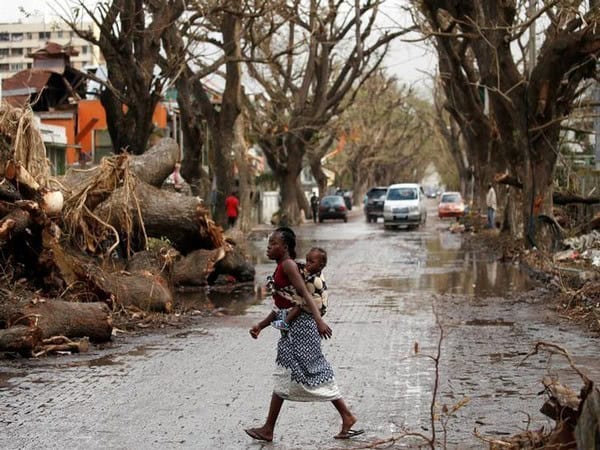Maputo [Mozambique]: Human Rights Watch (HRW) on Thursday urged Mozambique authorities to investigate and prosecute alleged sexual exploitation of Cyclone Idai victims by local officials in exchange for food and aid.
“The sexual exploitation of women struggling to feed their families after Cyclone Idai is revolting and cruel and should be stopped immediately,” Dewa Mavhinga, Southern Africa director at Human Rights Watch, said in a statement.
“The authorities should promptly investigate reports of women being coerced into exchanging sex for food and appropriately punish anyone using their position of power to exploit and abuse women,” Mavhinga added.
Hunger and destruction caused by the cyclone have left hundreds of thousands of women vulnerable to abuse, the watchdog said in its report released on Thursday.
Victims, residents, and aid workers told Human Rights Watch that local community leaders, some linked to the ruling Frelimo party, demanded money from people affected by the cyclone in exchange for including their names on the aid distribution list, the statement said.
In some cases, women without money were instead coerced into engaging in sex with local leaders in exchange for a bag of rice, the statement added.
On March 14, tropical Cyclone Idai hit near the coastal city of Beira in Mozambique, bringing heavy rains that left entire villages in Manica, Sofala, and Zambezia provinces submerged as floodwaters rose. Thousands of people were displaced and, according to the United Nations, over 1.85 million people, most of them women and children, are urgently in need of assistance.
The UN World Food Programme said it has reached one million people with food assistance, in coordination with the government and the National Institute for Disaster Management, but many others have yet to receive any assistance. The national agency distributes packages of food aid in coordination with local authorities based on a list of beneficiaries compiled by community leaders, including administrators and neighbourhood secretaries.
A local community leader in the town of Tica, Nhamatanda district, told Human Rights Watch that in some cases, where access by road is impossible, local community leaders are responsible for storing the food and distributing it to families on a weekly basis.
The local leader said, “Because the food is not enough for everyone,” some local leaders have exploited the situation by charging people to include their names on the distribution lists.
One aid worker told the watchdog agency that the distribution list often contains only the names of male heads of households, and excludes families headed by women.
“In some of the villages, women and their children have not seen any food for weeks,” she said.
“They would do anything for food, including sleeping with men in charge of the food distribution,” she added.
Meanwhile, Human Rights Watch, on April 18, in a telephonic conversation with three women from the town of Mbimbir, Nhamatanda district, noted that local officials had coerced them into exchanging sex for food aid.
One woman said that when the food distribution started on April 6, a man locally known as a Frelimo secretary who oversaw the distribution list told her that her name was not on the list. He told her to go wait at home, and that he would come later “to help her if she helped him too,” the Human Rights Watch said in its statement.
In the evening, the man brought a bag of rice, a bag of corn flour, and one kilo of beans. “When he arrived, he placed the bags on the floor, and started touching his thing [penis] and told me it was now my turn thank him. I told my children to go to my friend’s house. When they left, I slept with him,” the woman added.
Another woman, with four children, said that only her father had his name on the list and the food allocated to him was not enough for their entire household of 17. She spoke to a community leader who said, “He could help me if I was nice to him.”
“We agreed on a time to meet and do the thing [have sex]. When we finished, he gave me only a kilo of beans. When I complained, he said ‘Tomorrow there will be more’,” the woman said.
The human rights watchdog has pressurised the Mozambican government to adopt urgent measures to prevent sexual exploitation and abuse of cyclone victims and create an environment in which women can come forward and report abuses.
International partners, particularly the UN, should ensure greater oversight of the conduct of local officials during the distribution of humanitarian aid, the statement read.
“The Mozambican authorities have an obligation to ensure that everyone gets the protection they need in this situation, including vulnerable women at risk of sexual exploitation and abuse,” Mavhinga said.
“Emergency aid should be given freely to all people in need, and the government along with aid providers should ensure that aid distribution is never used as an opportunity to commit abuse,” he added.
[source_without_link]ANI[/source_without_link]

